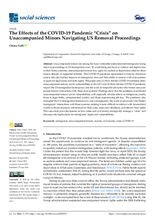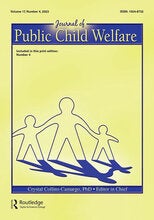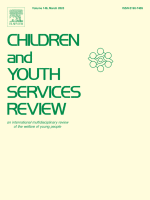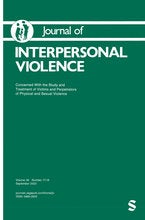Displaying 101 - 110 of 2176
This study examines early adulthood outcomes—incarceration and teen parenthood—among youth in Wisconsin who entered foster care in early-to-middle childhood (ages 5–10).
Using caregiver survey data, this study examined the following questions: (1) What is the prevalence of children or youth living apart (LA)? (2) What are the risk and protective factors at child and family levels that are associated with LA? (3) What is the nature of the relationships between family members among those who have experienced LA? This study re-purposed data from surveys of adoptive parents and guardians of children formerly in foster care in four U.S. states.
Scholar argues that criminal supervision alternatives to incarceration too often lead to family separation.
This U.S.-based case study provides lessons on how states and civil society strategically manage a “crisis” and discusses the implications for immigrants’ rights and vulnerabilities.
This longitudinal U.S.-based study examined the link between caregiving-related early adversity and elevated risks for both depressive psychopathology and prematurely shortened telomeres across the lifespan of children exposed to early institutional care.
This U.S.-based study explored youth experiences in residential care at different stages of adolescence.
This mixed-methods study included foster parents in six mid-Southwestern states in the U.S. foster parents serve a critical role in the child welfare system; however, many report being dissatisfied with their role. As such, dissatisfied foster parents are at risk of disruption and turnover, ultimately resulting in placement moves for youth in care. Placement moves have negative impacts on youth well-being, prompting a need to explore issues related to placement longevity related to foster parent satisfaction.
This US-based study examines the perspectives of families and professionals on child welfare practice during the COVID−19 pandemic.
This US-based study draws from a large-scale, quasi-experimental study of group homes in a southeastern state. To date this is the study examining youth’s prospective assessment of group home treatment quality on their later treatment outcomes.
This US-based study explores factors associated with intimate partner violence using longitudinal data from a representative sample of older youth in California Foster Care who participated in the California Youth Transitions to Adulthood Study (CalYOUTH). The authors' IPV outcome measures included victimization, perpetration, bidirectional IPV, and emotional abuse.





